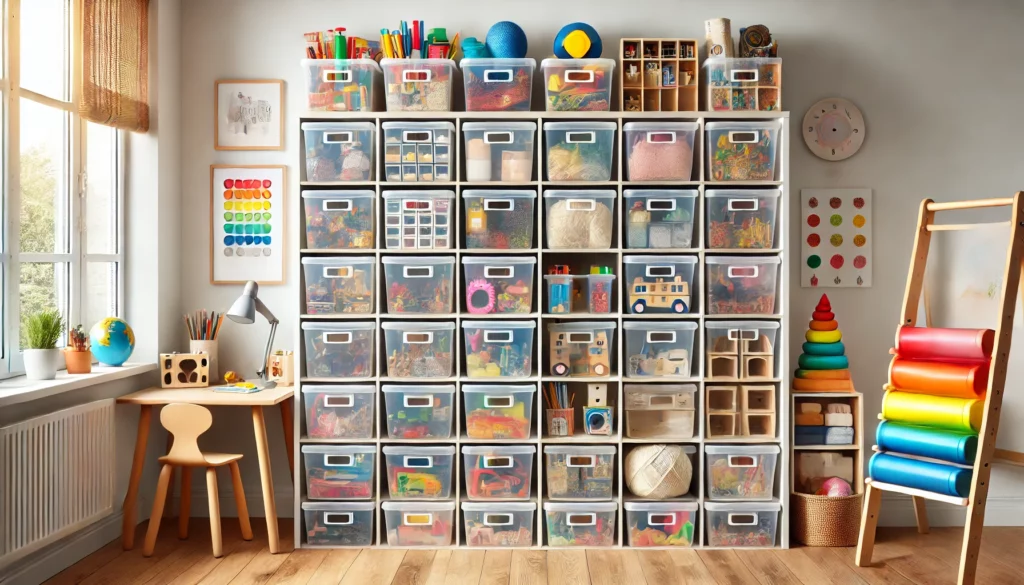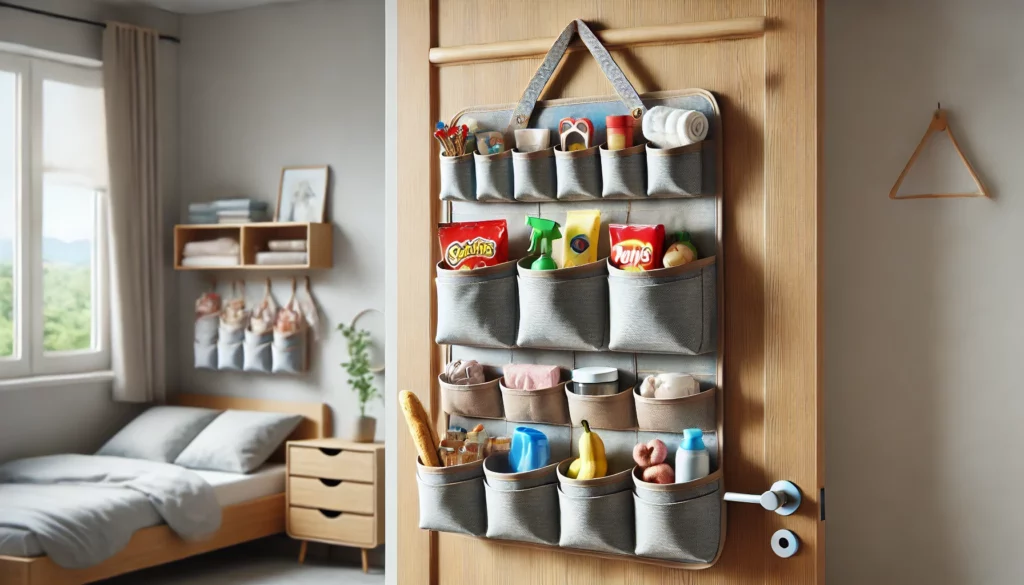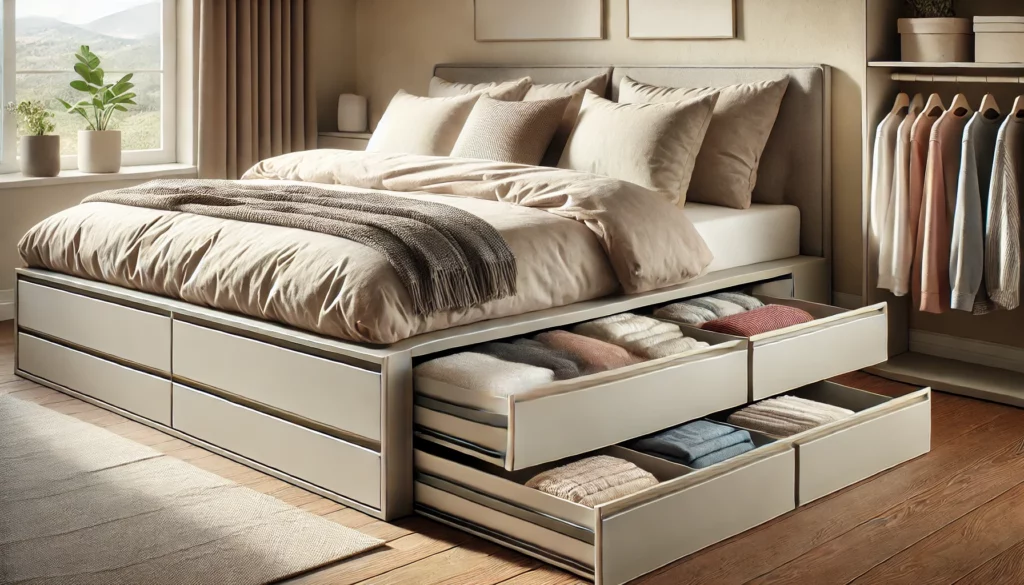Decluttering your home can often feel like an overwhelming task, especially when clutter has accumulated over time. However, with a structured approach and practical strategies, you can easily identify problem areas and transform your living space into an organised and serene environment. In this article, we’ll explore some effective decluttering tips to help you tackle the clutter in your home, with a focus on finding the trouble spots and addressing them step by step.
The Importance of Decluttering
Before diving into specific decluttering tips, it’s essential to understand why decluttering is important. Clutter can create a stressful environment, leading to mental fatigue and frustration. Studies have shown that a clean, organised space can boost productivity, reduce anxiety, and create a sense of calm. By decluttering your home, you’re not only creating a more aesthetically pleasing space but also improving your mental well-being.
Decluttering Tips for Identifying Problem Areas
The first step to tackling clutter is to identify the areas in your home where clutter tends to accumulate. These “hot spots” are usually high-traffic areas or places where items don’t have a designated storage space. Here’s how to locate and address these problem areas:
1. Assess High-Traffic Zones
Areas like the entryway, kitchen countertops, and living room tend to attract clutter because they are frequently used. Items such as mail, shoes, keys, and bags often pile up in these spaces. Take a walk through your home and note which areas tend to accumulate items the fastest.
Tip: Place baskets or trays in these high-traffic areas to corral loose items. For example, a basket by the front door can hold keys and mail, making it easier to keep the space tidy.

2. Evaluate Storage Spaces
Closets, cupboards, and garages are common problem areas when it comes to clutter. These spaces often become dumping grounds for items you don’t know where else to put. Take a close look at your storage spaces to see if they are well-organised or if they contribute to clutter buildup.
Tip: Use vertical storage solutions like shelving or over-the-door racks to maximise space in closets and cupboards. This will allow you to keep items organised and reduce the chances of clutter piling up.

3. Inspect Hidden Areas
It’s easy to overlook places like under the bed, behind furniture, or inside drawers. However, these hidden areas are notorious for collecting clutter over time. Make it a point to check these spots regularly and clear out anything you no longer need.
Tip: Storage bins that fit under the bed or drawer organisers can help you keep these hidden areas clutter-free. Make sure everything has a designated space.

Practical Decluttering Tips to Fix Problem Areas
Now that you’ve identified the problem areas in your home, it’s time to implement solutions that will help you maintain an organised space. Here are some effective decluttering tips:
4. The One-In, One-Out Rule
For every new item you bring into your home, commit to getting rid of one existing item. This will help prevent clutter from accumulating over time and force you to evaluate whether you really need each new purchase.
5. Declutter by Category
Rather than decluttering by room, try tackling one category of items at a time. For example, focus on decluttering all your books, then move on to clothes, and so on. This approach can make the process feel more manageable and help you stay focused.
6. Regular Maintenance
Decluttering isn’t a one-time task; it requires regular upkeep to prevent the clutter from returning. Set aside time each week or month to revisit high-traffic areas and storage spaces to ensure that everything stays organised.
How to Stay Motivated During Decluttering
Maintaining momentum during the decluttering process can be challenging, especially when faced with large projects. Here are a few tips to keep you motivated:
- Break the task down into smaller chunks. Instead of trying to declutter your entire home in one day, focus on one room or area at a time.
- After completing a decluttering session, treat yourself to something enjoyable, whether it’s a nice meal or relaxing with a book.
- Keep in mind the benefits of a clutter-free home. Visualising your space once it’s organised can help push you through the more challenging parts of the process.
Space Centre’s 4-Pile Decluttering Rule: Recycle, Donate, Sell, and Keep
The 4-pile decluttering rule is a simple and effective strategy for tackling clutter. It involves sorting your belongings into four distinct categories: Recycle, Donate, Sell, and Keep.
- Items in the Recycle pile are those that are no longer useful but can be repurposed or recycled in an eco-friendly way.
- The Donate pile includes items in good condition that can be given to charity or others in need. Consider donating clothes to a UK charity called Collect My Clothes or the British Heart Foundation
- Items in the Sell pile are those that may hold value and can be sold online or through garage sales.
- The Keep pile consists of items that you still use and wish to keep in your home.
By breaking the decluttering process into these manageable categories, you can systematically reduce clutter and stay organised.
Self Storage and Decluttering Tips
If you find that you have items you can’t part with, but don’t have space for in your home, self storage can be a useful option. Self storage facilities offer secure and convenient solutions for storing items you need to keep but don’t use regularly. When considering self storage, here are a few things to keep in mind and read this guide for advice on finding the right storage unit for you.
- Choose a facility with good security measures
- Choose the right size unit for your belongings so you don’t pay for space you don’t need
- Label and organise your belongings before storing them for easy access later
Decluttering your home doesn’t have to be an overwhelming task. By identifying problem areas, implementing effective solutions, and staying motivated, you can transform your space into an organised, clutter-free environment. Use these decluttering tips to maintain a tidy home and enjoy the mental and physical benefits that come with it.